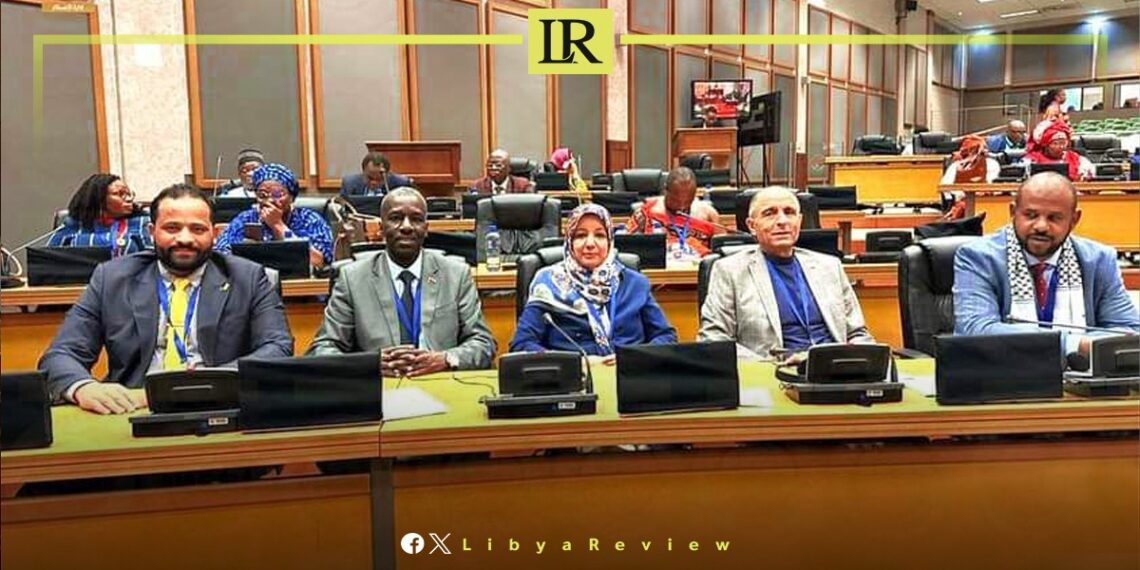Members of the Libyan House of Representatives, including Saleh Qalima, Asma Al-Khoja, Yousef Al-Fakhri, Salem Qanan, and Abdulqader Yahya, participated in the opening session of the third ordinary session of the sixth legislative term of the African Parliament in South Africa.
The session focused on improving the quality of education across the African continent, with extensive participation from continental and international institutions. The sessions were dedicated to presenting ideas and proposals for effective solutions to enhance educational quality in Africa.
Adel bin Abdulrahman Al-Asoumi, President of the Arab Parliament, attended the session as a guest of honor. In his speech, he expressed his support for the African Parliament.
Al-Asoumi thanked the African continent for its steadfast support on common issues between Arab and African countries, particularly the Palestinian cause.
The third ordinary session will continue until July 5, including meetings of regional groups within the African Parliament and sessions of its permanent committees.
Members of the Libyan House of Representatives, including Saleh Qalima, Asma Al-Khoja, Yousef Al-Fakhri, Salem Qanan, and Abdulqader Yahya, participated in the opening session of the third ordinary session of the sixth legislative term of the African Parliament in South Africa.
The session focused on improving the quality of education across the African continent, with extensive participation from continental and international institutions. The sessions were dedicated to presenting ideas and proposals for effective solutions to enhance educational quality in Africa.
Adel bin Abdulrahman Al-Asoumi, President of the Arab Parliament, attended the session as a guest of honor. In his speech, he expressed his support for the African Parliament.
Al-Asoumi thanked the African continent for its steadfast support on common issues between Arab and African countries, particularly the Palestinian cause.
The third ordinary session will continue until July 5, including meetings of regional groups within the African Parliament and sessions of its permanent committees.
Libya has been in chaos since a NATO-backed uprising toppled longtime leader Muammar Gaddafi in 2011. The county has for years been split between rival administrations.
Libya’s economy, heavily reliant on oil, has suffered due to the ongoing conflict. The instability has led to fluctuations in oil production and prices, impacting the global oil market and Libya’s economy.
The conflict has led to a significant humanitarian crisis in Libya, with thousands of people killed, and many more displaced. Migrants and refugees using Libya as a transit point to Europe have also faced dire conditions.
The planned elections for December 2021 were delayed due to disagreements over election laws and the eligibility of certain candidates. This delay has raised concerns about the feasibility of a peaceful political transition.
Despite the ceasefire, security remains a significant concern with sporadic fighting and the presence of mercenaries and foreign fighters. The unification of the military and the removal of foreign forces are crucial challenges.


